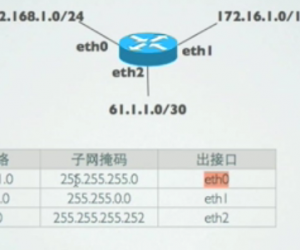基于TinyProxy搭建HTTP代理服务器
发布时间:2014-09-05 14:43:08作者:知识屋
基于TinyProxy搭建HTTP代理服务器
一、前言
关于为什么要玩玩HTTP代理就不用我多说了。
二、搭建环境
* Linux laptop 2.6.32-45-generic #100-Ubuntu SMP Wed Nov 14 10:41:11 UTC 2012 i686 GNU/Linux
* tinyproxy 1.8.1
三、安装方法
$sudo apt-get install tinyproxy
安装后自动以root权限开启了tinyproxy服务,且默认监听端口是8888
四、启动帮助
$tinyproxy --help
Usage: tinyproxy [options]
Options are:
-d Do not daemonize (run in foreground).
-c FILE Use an alternate configuration file.
-h Display this usage information.
-l Display the license.
-v Display version information.
五、根用户的启动方法
* 默认启动
$sudo service tinyproxy start
* 重启
$sudo service tinyproxy restart
* 停止
$sudo service tinyproxy stop
六、DIY配置
4.1 默认配置文件位置
/etc/tinyproxy.conf
(可以从/etc/init.d/tinyproxy包装器脚本中查到)
4.2 默认配置说明
* 以根用户启动时,在初始化完成后切换uid/gid为nobody/nogroup
* Port 默认监听端口为8888(该端口无需用root权限绑定)
* 默认在所在网卡上监听
* Logfile (必须)日志文件, 默认/usr/var/log/tinyproxy/tinyproxy.log,在LogFile文件不存在时会警告,不会运行失败。
* Pidfile (必须)pid文件, 默认/usr/var/run/tinyproxy/tinyproxy.pid,在PidFile文件不存在时会运行失败。
* StartServers 初始启动的代理服务器子进程(默认是10个)
*** Allow 允许使用tinyproxy进行HTTP代理的IP地址。默认是127.0.0.1,如果想要公开tinyproxy代理服务器,则把Allow一行注释掉。
4.3 Diy配置说明
tinyproxy可以以普通用户权限运行,只要监听端口是公开的就可以了。具体Diy配置方法如下:
-- 打包可执行程序与默认配置文件 --
1. $which tinyproxy
/usr/sbin/tinyproxy
2. $cp /usr/sbin/tinyproxy ~/bin
3. $cp /etc/tinyproxy.conf ~/etc
-- 修改配置 --
1. 将Port默认的8888改成你想要的端口(如ljysrv上面的8990 TCP端口)
2. 将Allow 127.0.0.1注释掉
3. 将Logfile改为/tmp/tinyproxy.log
4. 将PidFile改为/tmp/tinyproxy.pid
-- 启动 --
1. $cd ~/bin
2. $./tinyproxy -c ~/etc/tinyproxy.conf
-- 关闭 --
1. $killall tinyproxy
(免责声明:文章内容如涉及作品内容、版权和其它问题,请及时与我们联系,我们将在第一时间删除内容,文章内容仅供参考)
相关知识
-

linux一键安装web环境全攻略 在linux系统中怎么一键安装web环境方法
-

Linux网络基本网络配置方法介绍 如何配置Linux系统的网络方法
-
Linux下DNS服务器搭建详解 Linux下搭建DNS服务器和配置文件
-
对Linux进行详细的性能监控的方法 Linux 系统性能监控命令详解
-
linux系统root密码忘了怎么办 linux忘记root密码后找回密码的方法
-
Linux基本命令有哪些 Linux系统常用操作命令有哪些
-
Linux必学的网络操作命令 linux网络操作相关命令汇总
-

linux系统从入侵到提权的详细过程 linux入侵提权服务器方法技巧
-

linux系统怎么用命令切换用户登录 Linux切换用户的命令是什么
-
在linux中添加普通新用户登录 如何在Linux中添加一个新的用户
软件推荐
更多 >-
1
 专为国人订制!Linux Deepin新版发布
专为国人订制!Linux Deepin新版发布2012-07-10
-
2
CentOS 6.3安装(详细图解教程)
-
3
Linux怎么查看网卡驱动?Linux下查看网卡的驱动程序
-
4
centos修改主机名命令
-
5
Ubuntu或UbuntuKyKin14.04Unity桌面风格与Gnome桌面风格的切换
-
6
FEDORA 17中设置TIGERVNC远程访问
-
7
StartOS 5.0相关介绍,新型的Linux系统!
-
8
解决vSphere Client登录linux版vCenter失败
-
9
LINUX最新提权 Exploits Linux Kernel <= 2.6.37
-
10
nginx在网站中的7层转发功能
























